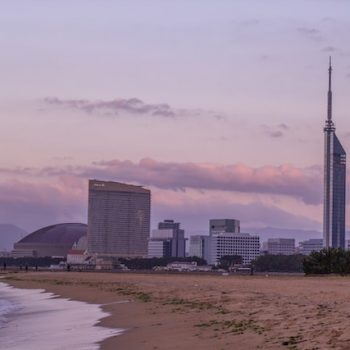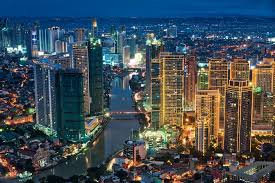What is Absolute Power?
Generally, StartupBlink’s GSEI scoring algorithm calibrates the countries’ total score to their population size to check the startup outputs of countries per capita.
The “Absolute Power” algorithm ignores the size of the population and looks at the absolute amount of startup output per country to compare their dominance regardless of population size. Hence countries with larger populations, such as China, India, Brazil, and Japan, are expected to have higher positions in this alternative ranking. In this report, we expand on the findings of StartupBlink’s Global Startup Ecosystem Index 2022 and analyze the top 30 countries with the highest Absolute Power in 2022. This report also shows that despite the fact that countries with large populations do have a better rank for Absolute Power, this does not guarantee a top position.
With StartupBlink Pro, you can filter rankings based on population to compare your ecosystem’s performance with your peers.
Key Insights in the Top 30 Countries by Absolute Power
The United States maintained its position as the leading country
Although the United States population is approximately a quarter of the population of China and India, it still sits in first place on the Absolute Power rankings. This consistency in United States’ rankings shows that its startup economy is significantly better than the ones of China and India, regardless of population.
Another important point to highlight about the United States and China is the huge total score gap between the two countries. China’s total score is 81.35% less than the United States.
The United Kingdom maintains its high ranking
The United Kingdom is ranked 2nd in the Index and 3rd in the Absolute Power rankings. Considering that The United Kingdom’s population is relatively smaller compared to the populations of Japan, India, and Germany, a drop of only 1 spot attests to the strength of this ecosystem.
China and India climbed 8 and 15 spots, respectively
China and India are two of the most populous countries in the world. Unsurprisingly, in Absolute terms, these countries have better rankings. China moved from 10th to 2nd position, and India moved from 19th to 4th.
In the Global Rankings, Ukraine, Indonesia, Turkey, and Brazil perform below their potential
Compared to their Global rankings, Ukraine, Indonesia, Turkey, and Brazil have higher positions in the Absolute Power rankings. Ukraine moved from 50th to 27th, Indonesia from 38 to 17, Turkey from 46 to 27, and Brazil from 26 to 9. These countries are underutilizing their potential, as they only rank better when the total output is considered, and with the adjustment in the algorithm, smaller countries are ranked above them.
The Gap Between Singapore and Indonesia Narrowed Down by 30 spots
In the Global Rankings, Indonesia ranks 38th which is 31 spots below Singapore (ranked 7th globally). When the two countries are compared in Absolute Terms, Indonesia is 1 spot below Singapore, so the gap between the two countries is narrowed. However, it is important to note that Indonesia’s population is more than 200 million, while Singapore’s population is approximately 5 million.
Israel’s achievement in Absolute Terms should be celebrated
Israel’s population is less than 10 million people. Despite its population, even in Absolute terms, Israel is in the league of the Top 10 countries with a drop of 5 positions from the Global Rankings, above countries such as Japan, Russia, Ukraine, and Turkey. This results from building a thriving and global startup ecosystem that relies not only on the local population. Israel is the only country with a population of less than 10 million, ranked in the top 10 in this index.
Other Notable Mentions: Sweden, the Netherlands, and Switzerland
As expected, Sweden, the Netherlands, and Switzerland are among the countries that experienced a fall when ranked in Absolute terms. However, these countries are still above those with larger populations:
- Sweden is 4 spots above Indonesia and 3 spots above South Korea. It is also the second-highest-ranked country with less than 10 million population.
- The Netherlands is 2 spots above Indonesia and 6 spots above Mexico.
- Switzerland is 8 spots above Turkey.
Conclusions
A key conclusion that can be drawn from this report is that the US startup ecosystem is so strong that, even without population adjustments, it still maintains the leadership position against the countries with larger populations. Moreover, Israel’s case shows that a smaller population is not a barrier to becoming one of the top ecosystems in the world, as even in Absolute Terms, it succeeded in staying among the Top 10.
Methodology
To ensure that the rankings are as accurate as possible, we have based our algorithm on objective, quantifiable data that can be comparatively measured across regions, countries, and cities. We refrained from using subjective tools such as surveys and interviews, and instead utilized data that was either accumulated directly from the StartupBlink map or has arrived from integration with a reliable global data partner. We allow as few assumptions as possible regarding cause and effect and focus on one thing: measuring results. We avoid relying on any theoretical models assuming the causes of success for startup ecosystems.
Every year our algorithm is more accurate, and it should be noted that each ecosystem's momentum change is influenced by its achievements over the last year and by these algorithm improvements. We have been sampling startup ecosystem data on the curated and interactive StartupBlink Global Map, enabling us to test and perfect our algorithm based on vast data sets. We estimate that the core map dataset has a representative sample covering 10-15% of total relevant entities in global startup ecosystems. In addition, hundreds of thousands of entities and data integrations are taken into account via our global data partners. Each location’s final score is based on the exact same algorithm. However, we are aware that our sample size fluctuates depending on location and data sourcing. Our only intervention in the score is discounting locations, where we determined that the sample size of the entities is higher than average. In order to solve issues with lower than the average sample size, we have partnered with approximately 100 Ecosystem Partners, most of which are Government agencies, many of them in locations where our data is limited. We offer all governments administrative access to curate the dataset of their ecosystems at no cost, granting them complimentary access. On our rankings with Unicorns and Exits, we consider each startup's valuation and add special filters to exclude government entities and corporate spin-offs.
About Us:
StartupBlink is the world’s most comprehensive startup ecosystem map and research center, working with over 100 government entities worldwide. StartupBlink’s global startup ecosystem map has tens of thousands of registered startups, coworking spaces, and accelerators, creating a robust sample of innovation globally.
Our Data Partners:










